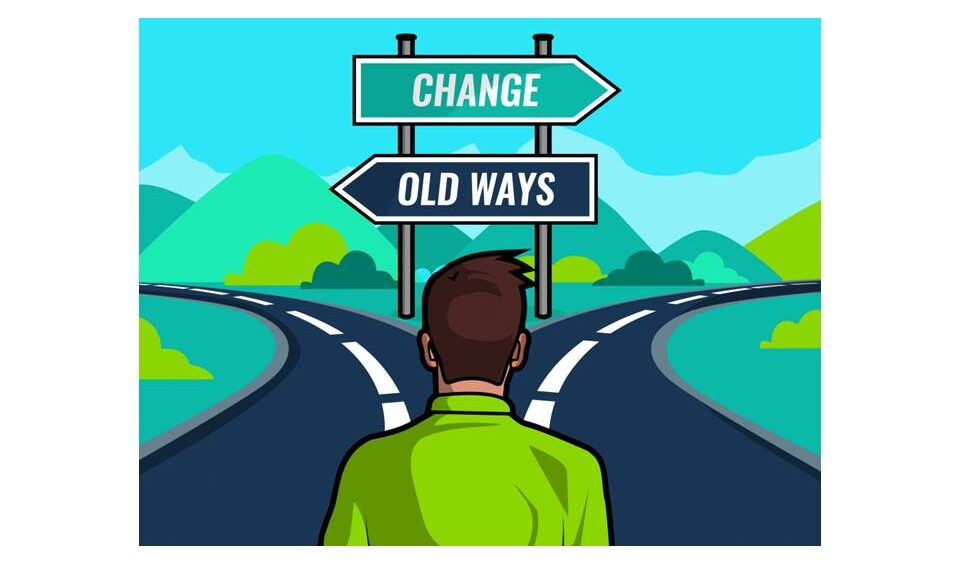I believe everyone can change. I wouldn’t be a therapist if I didn’t. However, I believe that change is bloody hard! (Please excuse my language.)
When I talk to my clients about change I use this metaphor…

If you came to the edge of this field, and you needed to get across, which way are you likely to walk through it? Most people say they would take the easy path – I know I would.
If you decided to go a different way through you might have to beat the grass back with a stick. You might trip over some unseen stones or fall into an unseen hole. There might be nettles or thistles that sting or scratch you. It might take you a lot longer to get through it and make you a lot more exhausted than if you just took the set path.

This is how the brain/body works every day. We wake up and automatically take the easier path. This is called learned behaviour. It is our habits and patterns of being. So, even though our learned behaviour/habits may be harming us, we know them and they are easy for us to slip into every moment of every day. We can do it without even thinking about it.
Changing these is like taking the new path. It is difficult. It takes effort. It can be painful and there could be dangers we can’t see. We have to think about it every moment of every day. Some days we will wake up and automatically take the old, easy path and then deciding to go back onto the harder path can then be even more difficult.
But, there is hope. The more we take the new path the easier it gets. This is called neuroplasticity.

Basically neuroplasticity states that the more we do something new the more it becomes a habit. It can take a long time though. Remember how long you have been taking the easy path – it’s not going to change overnight – but it is possible.
However, you need a really good reason to change. Remember this image…

Why would anyone take the harder path if they didn’t really have a specific destination? You would only beat a path through this field if you knew there was somewhere great to go to over on the left or right. If you didn’t think this why would you bother.
The same goes with change. If you don’t know exactly what you are striving for, and that it is going to be better for you, why bother. This is one of the main reasons people don’t change. They are not sure whether the outcome is worth the effort. A good tool that I often use with clients is the change matrix.
Using this worksheet you can see what might be holding you back and whether you really want to change.
You have to be brutally honest with yourself when completing this in order for it to be helpful. For example, I was working with a client who had come to me because he was off sick from work with stress and low mood. He had come because he thought he wanted to get better. After a while of not changing we completed the Matrix and he was very honest. He put down that having the free time he currently had was important and that he didn’t enjoy working. He realised that, at that moment, he didn’t want to change because it would mean him having to go back to work.

Clients often look at me as if I’m a bit crazy when I explain to them that they will be getting something out of being ‘ill’. They often say there are no benefits of them staying the same but that often isn’t true. Have a think… Do you get more attention if you’re ill than you would if you weren’t? Do you get looked after? Do people ‘rescue’ you more when you are seemingly helpless? Do you get to stay in your comfort zone? Do you avoid the danger of rejection? Etc etc. All these things can be ‘benefits’ of staying the same and should be written in the Matrix if they apply to you.
So, after you’ve completed the Matrix, what does it tell you? Did you struggle to write anything for the Upsides of changing? If so, you might not have a goal in mind and this might be the reason you are struggling with change. Or did you write a lot in the Downsides of changing? You might think then that there is too much to lose if you change.
If you still want to change but are struggling then it might be a good time to seek out some support from a therapist.
If you look at the Change Matrix and have seen that you do want to change then you now have the reasons to do so written down. Every time you are finding it hard (which you will) take a look at these and remind yourself why you are making the commitment.
All the best.






Sorry, the comment form is closed at this time.